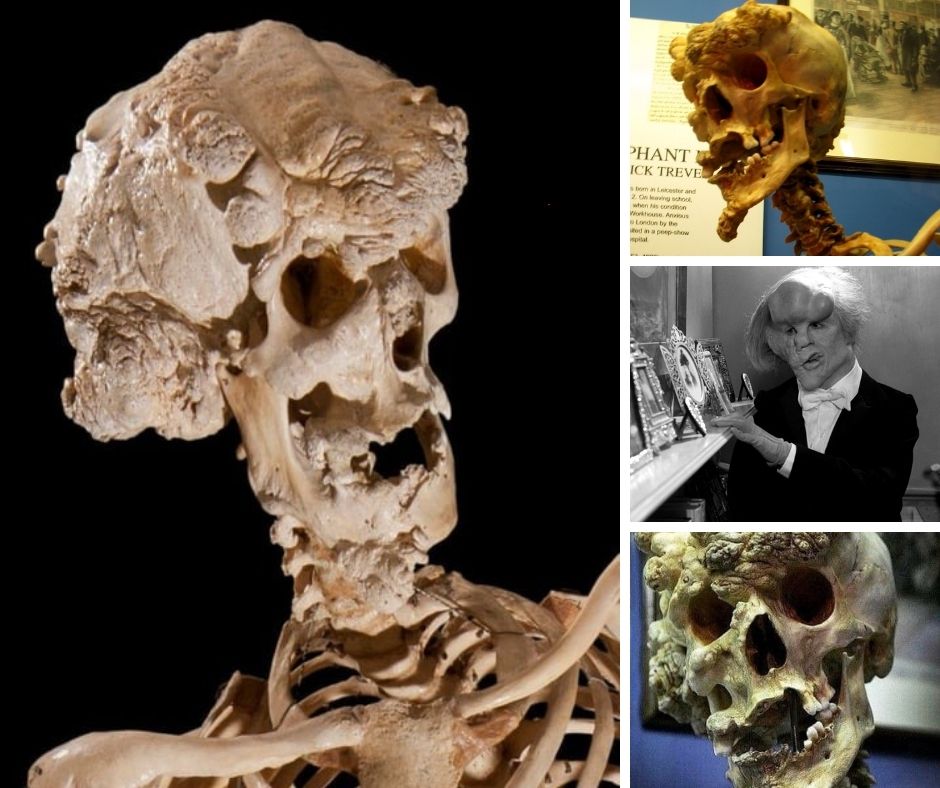The Elephant Man’s Haunting Legacy – A Face the World Couldn’t Forget

In the smoky streets of Victorian England, a figure emerged who would leave an indelible mark on history. Joseph Carey Merrick, born in 1862, came into the world as a seemingly ordinary child. But as he grew, his body began to twist and contort under the mysterious grip of what is now believed to be Proteus syndrome. His features became grotesquely enlarged, his skin thickened, and his limbs deformed beyond recognition. To a society unprepared for such difference, Merrick became a spectacle—exhibited in traveling sideshows as “The Elephant Man,” a cruel label that defined him in the public eye.
Crowds gawked, jeered, and recoiled at his appearance, rarely pausing to consider the human being within. Yet behind the outward strangeness lay a gentle spirit and a keen, thoughtful mind. Joseph Merrick was intelligent, articulate, and deeply sensitive, longing not for fame or pity but for simple dignity and connection.
His life took a transformative turn when he was discovered by Dr. Frederick Treves, a physician at the Royal London Hospital. Treves saw not a monster, but a man—fragile, intelligent, and worthy of compassion. Within the hospital walls, Merrick found what had been denied him all his life: respect, safety, and the chance to live without ridicule.
Though his years were few—he died in 1890 at the age of 27—Merrick’s legacy endures. His haunting face, once a source of fear and cruelty, has become a symbol of resilience, humanity, and the desperate longing for acceptance. The world remembers him not for the deformities that defined his body, but for the extraordinary grace with
Joseph Merrick’s story remains a timeless reminder that true humanity
